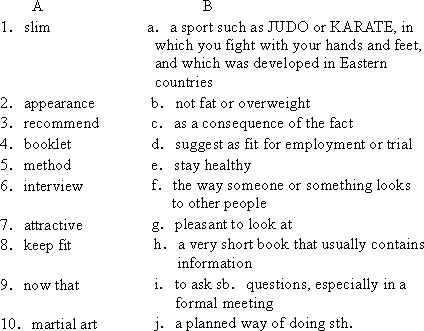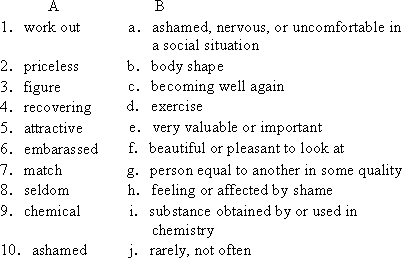网址:http://m.1010jiajiao.com/timu3_id_2558186[举报]
(地中海). Their small bodies have many cells-each about the size of a large sand-but they are animals. The
most exciting thing about these creatures, is that they don't seem to need oxygen to live.
What biologists know about life so far is that only one-celled (单细胞) animals can live in spaces that have
no oxygen, and those animals who have many cells can visit these places, but cannot live there. These newly-
found creatures could change that idea.
The animals live in a super-salty lake under the Mediterranean Sea. It may seem strange to think of a lake
under the sea, but the water in the lake is so salty that it cannot mix with the seawater above it, and the water
in the lake is even saltier than normal seawater. Ordinary seawater has oxygen in it-which allows animals like
fish to live-but the water in the lake doesn't have oxygen.
Finding animals down there is surprising. The scientists at first thought they were the bodies of dead
animals floating (漂浮) into the lake from somewhere else. But later, they found "these dead bodies" appeared
to be alive. Some of these animals had eggs, which suggests they were reproducing (繁殖); and their old skins
suggest that they had lived there long enough to grow. But scientists still don't know how the animals live
without oxygen. More studies are needed, and maybe biologists will need to rethink (重新考虑) what they
know about animals.
B. three kinds of living animals
C. some dead animals bodies
D. animals that look like fish
B. Animals with many cells began to live in the lake.
C. The water in the lake has much more oxygen.
D. The water in the lake has different colours.
B. The animals in the super-salty lake catch scientists' attention.
C. One-celled animals may lay eggs to reproduce.
D. More animals can be found in the super-salty lake.
阅读下面短文,掌握其大意,从第每题所给的A、B、C、D四个选项中,选出最佳选项,并在答题卡上将该项涂黑。
Learning to Accept
I learned how to accept life as it is from my father. 1, he did not teach me acceptance when he was strong and healthy, but rather when he was 2and ill.
My father was 3a strong man who loved being active, but a terrible illness 4all that away. Now he can no longer walk, and he must sit quietly in a chair all day. Even talking is 5. One night, I went to visit him with my sisters. We started 6about life, and I told them about one of my 7. I said that we must very often give things up 8we grow --- our youth, our beauty, our friends --- but it always 9that after we give something up, we gain something new in its place. Then suddenly my father 10up. He said, “But, Peter, I gave up 11! What did I gain?” I thought and thought, but I couldn’t think of anything to say. 12, he answered his own question: “I 13the love of my family,” I looked at my sisters and saw tears in their eyes, along with hope and thankfulness.
I was also 14by his words. After that, when I began to feel irritated (愤怒的) at someone, I 15remember his words and become 16. If he could replace his great pain with a feeling of love for others, then I should be 17to give up my small irritations. In this 18, I learned the power of acceptance from my father.
Sometimes I 19what other things I could have learned from him if I had listened more carefully when I was a boy. For now, though, I am grateful for this one 20.
本文中作者通过和父亲的一次谈话感悟到了什么是生活中的得与失,以及该如何看待得和失,充满人生哲理。
1.A. Afterwards B. Therefore C. However D. Meanwhile
2.A. tired B. weak C. poor D. slow
3.A. already B. still C. only D. once
4.A. took B. threw C. sent D. put
5.A. impossible B. difficult C. stressful D. hopeless
6.A. worrying B. caring C. talking D. asking
7.A. decisions B. experiences C. ambitions D. beliefs
8.A. as B. since C. before D. till
9.A. suggests B. promises C. seems D. requires
10.A. spoke B. turned C. summed D. opened
如:There was a brief silence, then Gerald spoke up.;sum up 总结
11.A. something B. anything C. nothing D. everything
12.A. Surprisingly B. Immediately C. Naturally D. Certainly
13.A. had B. accepted C. gained D. enjoyed
14.A. touched B. astonished C. attracted D. warned
15.A. should B. could C. would D. might
16.A. quiet B. calm C. relaxed D. happy
17.A. ready B. likely C. free D. able
18.A. case B. form C. method D. way
19.A. doubt B. wonder C. know D. guess
20.A. award B. gift C. lesson D. word
查看习题详情和答案>>

